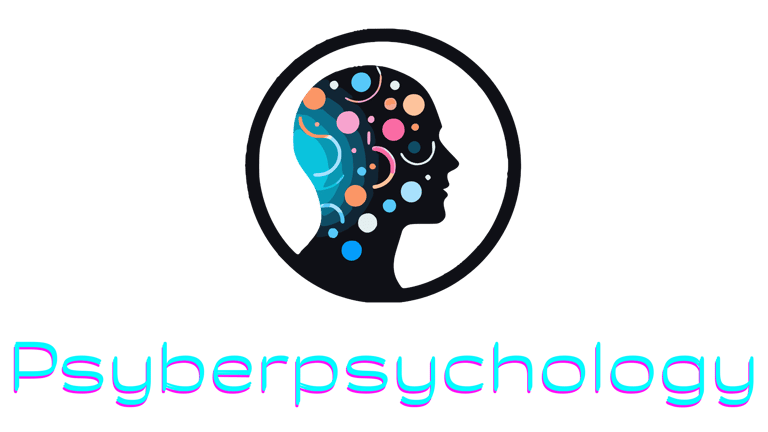Algorithmic Bias and the Psychology of Echo Chambers — How AI Shapes What We See and Think
AI & US


What if everything you know is exactly what an algorithm wants you to believe?
Every time you open a social media app, search for information, or browse a streaming platform, invisible algorithms are hard at work. They silently analyze your behavior, predict your preferences, and curate content specifically for you. While this personalization seems helpful, it comes with a hidden cost: algorithmic bias.
These AI-powered systems don't just organize content—they actively shape our worldview by determining what information we see and what remains hidden from us. This filtering process creates "echo chambers"—digital environments where we're primarily exposed to ideas that reinforce our existing beliefs, while contradicting viewpoints fade from view.


How Algorithms Shape Our Online Reality
The Role of Recommendation Algorithms
Facebook suggests friends and content based on your past interactions. YouTube recommends videos similar to ones you've watched before. TikTok's algorithm quickly learns what keeps you scrolling. Google personalizes search results based on your location, search history, and clicking patterns.
These platforms share a common goal: maximizing engagement. Their algorithms prioritize content likely to keep you on the platform longer—not necessarily what's most accurate, balanced, or beneficial for your understanding of complex issues. Often, this means sensational, emotionally-charged, or polarizing content rises to the top because it generates stronger reactions.
Filter Bubbles: Your Personalized Reality
In 2011, internet activist Eli Pariser coined the term "filter bubble" to describe how algorithms create individualized information environments that limit exposure to diverse perspectives.
Your news feed likely bears little resemblance to those of people with different political views, interests, or demographics—even if you follow the same topics. When you search for contentious issues like "climate change" or "immigration," the results you see are tailored based on what the algorithm predicts you want to hear, not necessarily what gives you the most comprehensive understanding.


The Psychology Behind Echo Chambers
Confirmation Bias: The Algorithm's Best Friend
Humans naturally gravitate toward information that confirms what we already believe. This psychological tendency—confirmation bias—makes us feel comfortable and validated.
Algorithms capitalize on this bias perfectly. When you engage with content that aligns with your views, the algorithm notes this preference and serves more similar content, creating a self-reinforcing cycle that narrows your information landscape over time.
The Illusion of Consensus
When your feeds are filled with perspectives similar to your own, it creates a false impression that your views are more widely shared than they actually are. Psychologists call this the false consensus effect—the tendency to overestimate how common our opinions are in the broader population.
This illusion becomes dangerous when it leads people to dismiss legitimate opposition as fringe or uninformed, further entrenching polarization.
Cognitive Dissonance: The Discomfort of Disagreement
Encountering information that challenges our deeply-held beliefs creates psychological discomfort known as cognitive dissonance. Our natural response is to avoid this feeling by seeking content that aligns with our existing worldview.
Algorithms detect when we quickly scroll past challenging content or close tabs with opposing viewpoints, and they learn to show us less of what makes us uncomfortable—regardless of its truth value or importance.


Real-World Consequences of Algorithmic Bias
Polarization and Division
As our information diets become more personalized, shared reality fractures. Political discussions become increasingly difficult when participants operate from entirely different sets of assumed facts. The middle ground disappears when algorithms optimize for engagement rather than understanding.
During recent elections worldwide, we've seen how algorithm-driven content can push users toward increasingly extreme positions, making compromise seem like betrayal rather than necessity.
Spread of Misinformation
False information often spreads faster and further than the truth. Why? Because misinformation is frequently designed to trigger emotional responses like fear, outrage, or vindication—precisely the engagement signals that algorithms reward.
Conspiracy theories about health issues, election integrity, or public figures can gain traction not because they're credible, but because they're engaging. The algorithm doesn't distinguish between truth and falsehood—only between what holds attention and what doesn't.
Mental Health Impacts
Constant exposure to fear-inducing news, social comparison, and polarizing content takes a psychological toll. Studies have linked algorithm-driven social media use to increased anxiety, depression, and feelings of isolation.
The dopamine hits from engagement-optimized content can create addictive cycles that keep us scrolling through increasingly extreme content, even when it makes us feel worse.


How to Break Free from Algorithm-Driven Thinking
Diversify Your Information Sources
Intentionally follow people and publications with differing viewpoints from your own.
Subscribe to curated newsletters and magazines where human editors, not algorithms, determine what's important.
Use RSS readers to directly follow websites without algorithmic intermediaries.
Seek primary sources rather than commentaries whenever possible.
Disrupt the Algorithm
Regularly clear your search history, cookies, and browsing data to reset algorithmic predictions.
Intentionally click on and engage with content outside your usual interests to confuse recommendation systems.
Use private browsing modes or search engines that don't track your behavior.
Try different keywords when searching for contentious topics to see varied results.
Critical Thinking Practices
Before sharing content, verify it through multiple reputable sources.
Question why certain content is appearing in your feed—who benefits from your engagement with it?
Notice your emotional reactions to content and ask whether those emotions might be clouding your judgment.
Look for primary sources behind claims, especially those that perfectly confirm your existing beliefs.
Digital Detox
Schedule regular breaks from algorithm-driven platforms.
Reconnect with information sources that aren't personalized, like books, academic journals, or local newspapers.
Have in-person conversations about important topics rather than relying exclusively on digital discourse.
Limit notifications that pull you back into algorithm-curated environments.


Beyond the Echo Chamber
In this era of tailored content, the greatest danger lies not in being manipulated, but in failing to recognize that manipulation. The most effective algorithms influence our perspective incrementally—recommendation by recommendation, search result by search result.
Escaping this influence demands conscious effort and persistent awareness. It requires embracing the discomfort of diverse viewpoints and actively seeking perspectives that challenge our own. It means acknowledging that what's convenient to consume isn't always what's truthful, and content that captivates our attention isn't necessarily content that properly informs us.
Try This: Echo Chamber Challenge
This week, spend just 15 minutes each day intentionally engaging with thoughtful content that represents viewpoints different from your own. Notice how your recommendations begin to shift, and more importantly, notice your own reaction to these different perspectives. Do they make you uncomfortable? Curious? Defensive? These reactions are valuable data about your own biases.
As you navigate your digital life, consider this crucial question: Have you formed your beliefs independently, or are they being subtly shaped by algorithmic curation?
The reality may be more nuanced than you initially thought.
